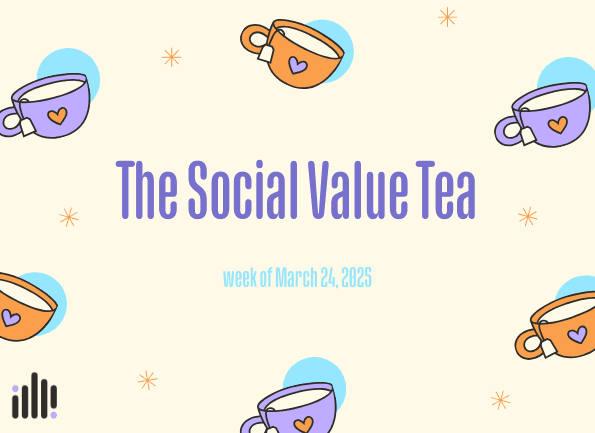The importance of tracking social value throughout an entire project life cycle
Over the last few weeks, we have outlined the upcoming changes to social value in government procurement and given our best advice for preparing for January 1st. But there is one significant change we are all hoping to see when the government’s new social value model kicks into action in the new year. Namely, more reliable and consistent tracking social value throughout the entirety of a project’s life cycle. From procurement, through its early stages, to final completion.
Only by tracking social value from start to finish, maximising progress, and keeping suppliers accountable can we ensure the maximum amount of social impact is extracted from every project.
Alongside the implementation of Annex A, project teams will soon have to explore how to implement systems to follow through with social value commitments made in procurement. The key to this will be learning how to harness data to track and visualise social value as it is generated.
The current picture
Currently, many organisations and local authorities assess the social value of their projects too late. It Usually occurs closer to the completion of a project, by which time they’re unable to change their approach and maximise the social value they get out of it. There is no opportunity to rectify any failed commitments and no way to ensure all relevant social value data and insights have even been gathered. So not only may not enough social value be generated in the first place, but some valuable efforts and progress may also be slipping through the cracks of data collection.
Leaving social value calculation until the ends of projects also creates no accountability for suppliers. With no monitoring of ongoing progress, or comparing actual social value generated against original commitments, what is there to stop suppliers from exaggerating their claims about what they can and can’t do within the specified time frame?
Given that the government’s new model is all about maximising social value, we will have to change how we approach the process to have a real, ongoing impact.
Overarching change
Osborne Clarke break down the significant shift expected in social value tracking particularly well: “The change that suppliers will see next year is a move away from a tick-box approach: instead of making general references to overarching policies on social value, businesses will need to commit to delivering targeted social value improvements relevant to the contract during its lifetime.”
“By placing a significant weighting on social value, and following that through with contractual obligations to report and deliver (with powers for the contract to be terminated if a supplier does not meet the social value KPIs), the government is looking for a system-level change to how its supply chain delivers measurable social value improvements.”
The more targeted approach laid out in PPN 06/20 promises to make monitoring and reporting on social value easier to achieve. But to encourage compliance and commitment from suppliers long-term, we also need to be following through on social value from the very beginning of projects.
Once suppliers have been selected based on the quality of their social value commitments, these promises should be monitored straight away. By visualising all suppliers’ progress in terms of their social value and tracking how they are sticking to their commitments, we can keep suppliers accountable. We can reduce the risk of suppliers making empty promises to secure competitive contracts.
How is this possible?
To make this a reality, procurement teams and project managers need to focus on visibility. We need to identify sooner rather than later which suppliers are keeping to their promises, which are sticking to schedule, and who may be falling behind.
With the right tools and systems in place, social value commitments made during procurement can be converted into measurable KPIs aligned with the themes set out in Annex A. Project managers can then monitor the actual delivery of social value against these and suppliers can log their activities and visualise progress to ensure they are keeping to schedule. Visualising all social value from start to finish keeps everyone engaged, aware, and accountable throughout projects.
The government’s changes promise to make a significant difference to the quality and amount of social value generated through government contracts. But a more targeted, committed focus on maximising social value through procurement won’t be enough in and of itself to influence the social value actually generated. We must also put systems in place to consistently monitor the progress and delivery of social value from start to finish. Only this way can we keep suppliers and project managers accountable for making sure all commitments are actually being met by a project’s completion.
Impact’s social value project management features enable you to monitor the progress and delivery of all the social value commitments made by your suppliers. By visualising the social value generated in real time, across all projects and suppliers, we make it that much easier to keep up with the government’s guidelines and to maximise social value. If you would like to find out more, or have any questions, give us a call on 0161 532 4752.




